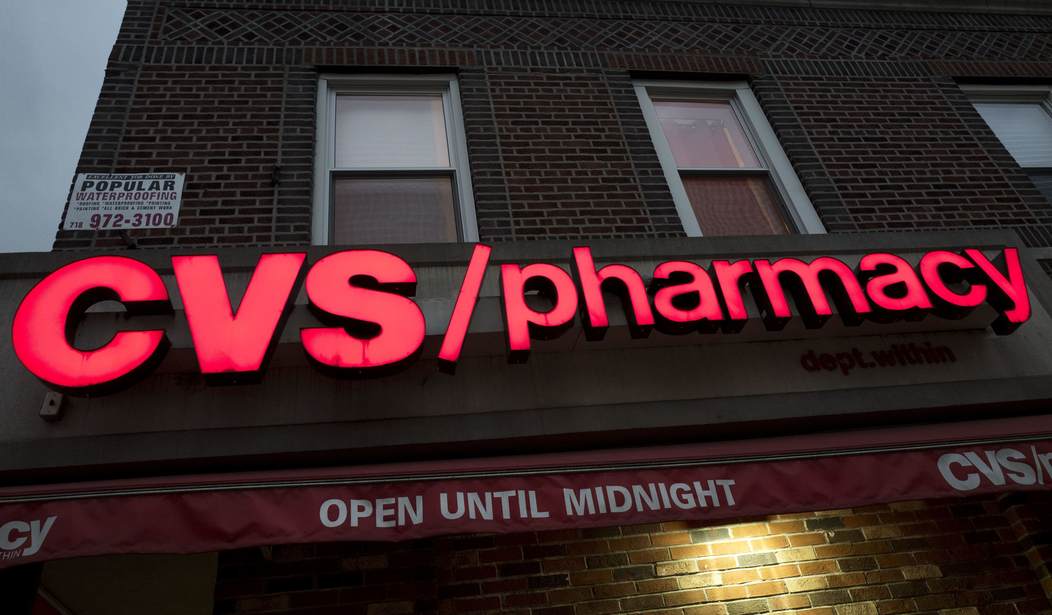CVS pharmacies got a bit of nasty news today from Blue Shield of California. The non-profit health insurer notified the pharmacy giant it would no longer be needing its Caremark services for its Blue Shield members – its 4.8M members.
Shares of CVS Health plunged 8% on Thursday after Blue Shield of California said it will drop the company’s pharmacy benefit management services and instead partner with Mark Cuban’s Cost Plus Drugs company and Amazon Pharmacy to save on drug costs for its nearly 5 million members.
The announcement hints at the potential for health insurers to abandon the traditional pharmacy benefit manager, or PBM, system and sent shares of other companies that offer PBM services lower.
…CVS Health’s Caremark has been Blue Shield’s PBM partner for more than 15 years.
The announcement sent CVS shares into a nosedive and signaled what might be the start of a significant shift in the way health insurers handle the pharmacological side of their business.
$CVS was rugged today bc the insurance company “Blue shield of California” is dropping CVS’s Caremark pharmacy benefit manager to work with other companies, including $AMZN pic.twitter.com/nlUChwkDYP
— – (@yonah369) August 17, 2023
Blue Shield said they’d been looking at alternatives, even trying to formulate their own plans, for quite a while, but it was CVS themselves who were the proverbial straw that broke the camel’s back. It’s hard to feel bad about the break-up.
…Paul Markovich, Blue Shield of California’s CEO, said in an interview that the move had been in the works for some time but was spurred by CVS’s reluctance to cover a much cheaper version of Johnson & Johnson’s (JNJ.N) cancer drug Zytiga this year.
“We managed to get to the same drug for about $160 a month (from around $3,000) and went to CVS and said we’d like them to sell it, but they told us ‘no’ for about five months until they would,” he said.
No wonder Congress is looking into these PBMs. When the insurer does the legwork and the PBM STILL says they won’t carry it? Something’s wrong.
…Lawmakers and the Federal Trade Commission have been investigating the role of PBMs in rising healthcare costs this year, which Markovich said is needed alongside further scrutiny from employers to mold a fairer pharmacy system for patients.
According to the blueprint, Blue Shield will work with its 5 new partners, each of whom will have a specific function. In the overall plan the idea is to streamline delivery and lower costs by eliminating things like middlemen, cumbersome rebate practices, etc. Blue Shield is going to maintain CVS Caremark service for its specialty pharmacy services.
…Instead, Blue Shield, a nonprofit health plan with about 4.8 million members, will work with a selection of companies that each perform a designated function. Amazon will offer at-home drug delivery. Cuban said Mark Cuban Cost Plus Drug Company will provide access to low-cost medications, including through retail pharmacies. Another company, Abarca, will process drug claims.
Blue Shield said that, working with its partners, it aims to negotiate prices with pharmaceutical makers in a way that is different from the typical approach—with a simple net price structure that is supposed to eliminate rebates and hidden fees.
Blue Shield executives said that with one company handling many aspects of how drugs are procured through the system, it is often hard to track the flow of payments accurately.
Blue Shield is hoping this new arrangement, once the rollout in 2025 is complete, will save them $500M a year in costs – about 10-15% of their outlay now – and perhaps become a template for other major insurers. Drug pricing, reimbursements, and tracking are a labyrinthine nightmare at the best of times.
…“The current pharmacy supply chain is a forest of opacity and profit,” said Paul Markovich, Blue Shield’s chief executive officer, in an interview with The Wall Street Journal. “It is overwhelmingly complex, it is designed to maximize the earnings of the participants.” His company’s new setup, he said, will be “flipping that on its head.”
But, while Blue Shield execs hopes are high, industry analysts are so sure the insurer isn’t trading one major pain for a boxful of them.
…The company’s plan is challenging, according to experts, who said it is likely to prove difficult to coordinate so many different parties</em>, some of which might have overlapping or competing businesses. Blue Shield and its partners might also struggle to broadly implement new pricing with drugmakers that would match the discounts negotiated by the biggest pharmacy-benefit managers, they said.
“They are trading the black box for a collection of competing interests,” said Adam Fein, chief executive of the Drug Channels Institute, which provides research on the drug-supply chain. “They may be biting off more than they can chew.”
Blue Shields CEO Paul Markovich said they’d also be using the drug contracts of pharmacy benefit manager Prime Therapeutics, and saving money by linking payments to “the outcomes they have for patients.”
CVS, in the meantime, still has the Blue Shield contract for the therapy drugs, which are usually the most expensive and complex to prepare. But the loss is a big blow…
…The change, however, marks another blow to CVS Caremark, which is set to lose the contract to manage Centene’s (CNC.N) $40 billion annual pharmacy needs from next year.
…especially if other insurers follow the money-saving Pied Piper away from the traditional pharmacy benefits management models that sustain them.








Join the conversation as a VIP Member